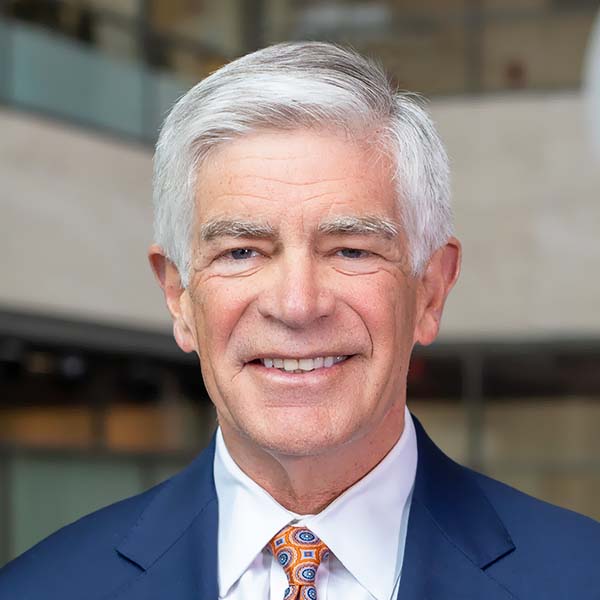Thank you very much, Tameshia, for leading that enlightening discussion, and thank you to Rebecca, David, and Johnny for sharing your stories and insights.
And, of course, thank you to Fed Communities and my colleagues from throughout the System — including Atlanta Fed President Raphael Bostic, who we heard from earlier — for their partnership in the Worker Voices Project.
To be sure, we’re at a watershed moment in our economy. I’m not just talking about the fight against inflation, in which we’re making progress.
It is a watershed moment in the labor market as well, especially for those of us who look at data and try to interpret their meaning. But numbers have two inherent problems. First, the numbers we get are always backward looking, a snapshot from an earlier time. Second, the numbers blur the faces and voices of those they seek to capture; they can only tell us so much.
This is where discussions like this and, more specifically, efforts like the Worker Voices Project are so essential. For our economy at this moment, it is important for those of us who hold a responsibility for promoting full employment and fostering economic opportunity to know, in real time, why workers are making the decisions they are, especially workers either employed in low-wage positions or who do not have a college degree.
And I also would suggest there are important messages that employers would be wise to heed concerning the kind of workplace they may need to create to attract the workforce they will need to be successful.
By education, I’m a civil engineer, even more than an economist. If you know anything about civil engineers, we’re always looking for ways to make things stronger, better, and more resilient. For me, this includes our economy.
As we have heard from today’s discussion, the factors going into the decisions made by workers of where to work, when to work, or whether to leave the work they have previously known to blaze an entirely new path — like David has — are increasingly complex. And we oversimplify these complexities at our own peril, whether as policymakers or employers.
Certainly, the pandemic did not create these complexities. As long as there has been work, workers have made decisions about their place and role in the economy, based on a number of factors. And workers today have more choices before them. The pandemic served as a breaking point for all of these stresses — at few other times in history have so many seemingly come to the same conclusions about their own future in the workforce.
They want to be treated with respect and dignity.
They want to the opportunity to gain new skills that will provide them with upward mobility.
They don’t want a job that doesn’t just get them through the day, but the opportunity to create a satisfying and high-quality career.
They want managers who recognize that they, like them, have families and dreams outside of work and strive to ensure an appropriate work–life balance.
The expectation of workers is that they will be treated as individuals. And this is especially true for workers in jobs at the lower ranges of the wage scale or those without degrees. Jobs are not one-size-fits-all, and neither are workers. Hiring processes may be more automated, but no worker wants to be treated like an automaton.
And the Worker Voices Project is providing the data that put this reality into greater focus and perspective.
As a result, many of us who have studied economics are having to rethink some of the premises we had previously relied upon. But that’s probably a good thing. Despite what many of us were taught in Econ 101, the study of economics is not all straight lines and straightforward conclusions. Sometimes the economy, and those contributing to it, not only bend long-established rules but contribute to the creation of new ones in the process.
We appear to be at that kind of moment now, and the research in the Worker Voices Project is contributing to this new way of thinking. Which is good, because if one thing is now crystal clear, it is that workers no longer want to be treated merely as a plot point on a graph.
For us as policymakers, the soft data provided by Worker Voices are equally important as, if not perhaps even more important than, numbers-driven hard data in getting a full understanding of our economic situation.
I am excited not just about this report, but for the research that is going to grow out of it. The more we can bring the examples outlined in the Worker Voices report into our way of thinking, the better our chances of creating a strong, growing, and more inclusive American economy.
So, when I hear someone utter the apocryphal question, “Why doesn’t anyone want to work anymore?” my response is to ask in return, “What are you doing in your workplace to make them want to work for you?” and to point them to the Worker Voices Project.
Again, I thank our panelists and everyone who contributed to today’s webinar. And I thank all of you watching for spending part of your afternoon with us.
Whitney, I’ll now hand the program back to you.
View the Full Speech
